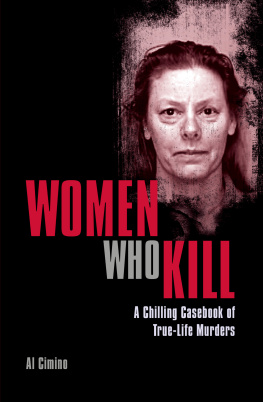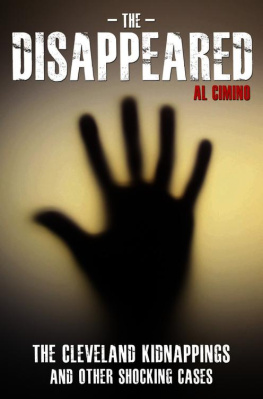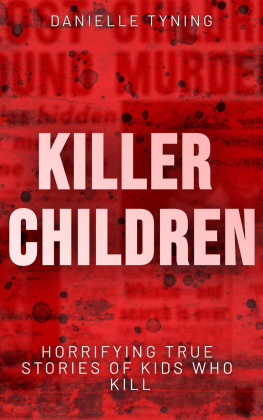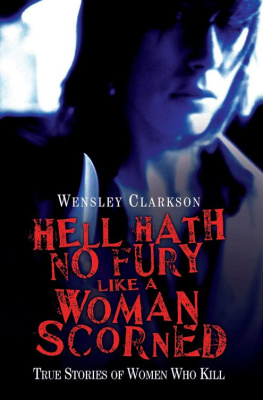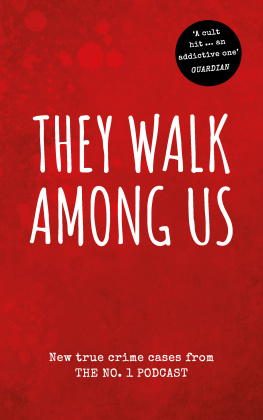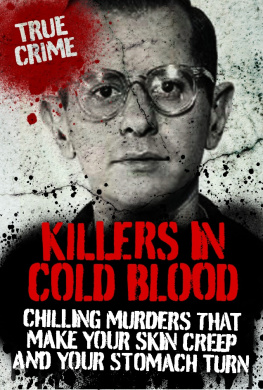Murder is not an equal-opportunity activity. Just 30 per cent of serious violent crimes are committed by women and only four per cent of homicides. However, female perpetrators face particular opprobrium. The fondest memories of most of us are the times we spent as a child with our mothers and we believe that all women should be just as nurturing but the women in this book are not like that.
Some murder their husbands and sometimes, like Tillie Klimek, they make a habit of it. Others, like Tracey Connelly, kill their own children, while Enriqueta Mart, the Vampire of Barcelona, killed other peoples children to make cosmetics and quack remedies out of them. Then there are those like Florence Ransom, who killed her rivals in love, Vera Renczi, who disposed of her many young lovers with poison, Phoolan Devi, who killed the men who had raped and humiliated her, and Rosemary West, for whom murder became the ultimate thrill in her depraved sex life.
There are no hard and fast rules about murder, except that there is often a compelling story attached to the crime. These case studies give a riveting insight into the lives and motives of women who decided to commit the ultimate transgression. They expose the shocking secrets that lurk in the hearts of those who pride themselves on being the caring sex.
These women are all the more frightening because you would not spot any of them as murderers at first sight. You might expect a male murderer to be recognizable by a scowl, a broken nose, multiple scars or an abundance of tattoos, but these women have no distinguishing features to give them away. True, when Phoolan Devi was the Bandit Queen she was swathed in bandoliers and carried a Sten gun, but in later life, when she became a member of parliament, she looked like any other attractive Indian woman. It would have been hard to think that she was not entirely harmless.
Indeed, no one is safe. This is all the more disturbing as my new girlfriend has a similar psychological profile to many of these murderesses and I dont like the look of the new kitchen knives she has just bought. So if
Chapter 1
Rosemary West
In 1995, Rosemary West was found guilty of committing ten murders. She claimed that her husband Fred West, who hanged himself before the trial began, had killed all of the victims on his own and she had not been involved, but the jury did not believe her.
Police find Heathers body
The couple lived in an ordinary three-storey house at 25 Cromwell Street in Gloucester in the south-west of England. On 24 February 1994, the police turned up with a warrant to dig up the back garden. The door was answered by Stephen West, the 20-year-old son of Fred and Rosemary. He was informed that the police were looking for the body of his sister Heather, who had disappeared in June 1987 at the age of 16. Stephen said his parents had told him that she had left home to work in a holiday camp in Devon and he believed that she was now living in the Midlands.
I wanted to know the reasons why they thought Heather was buried there but they wouldnt tell me, said Stephen, disingenuously. Among the West children there was a running joke that Heather was buried under the patio.
When Rosemary came home and saw the warrant, she became hysterical and hurled abuse at the police. She then contacted Fred, who was working on a building site about 20 minutes drive away.
Youd better get back home, Rosemary told him. Theyre going to dig up the garden, looking for Heather.
During Rosemarys interview, she told the police that Heather had been both lazy and disagreeable and they were well shot of her. Fred, in his turn, said that she was a lesbian who had become involved in drugs and, like his wife, he seemed unperturbed about her disappearance.
Lots of girls disappear, take a different name and go into prostitution, he said, apparently more concerned about the mess the police were making of his garden while they were raising the paving stones of his patio.
Cooking up a deal
Fred and Rosemary West stayed up all night, talking. Geoffrey Wansell, author of An Evil Love, a book based on 150 hours of taped interviews with Fred West, says they cooked up a deal. Rosemary was to keep silent, while Fred said he would sort it out with the police the following day, and that she had nothing to worry about as he would take all the blame.
The next morning, Fred stepped into the police car waiting outside the house and told Detective Constable Hazel Savage, who had instigated the search: I killed her.
At Gloucester Police Station, Fred told detectives how he had murdered his daughter and then buried her body, after cutting it into three pieces, adding: The thing Id like to stress is that Rose knew nothing at all.
Nevertheless, Rosemary West was arrested on suspicion of being complicit in Heathers murder and was taken to Cheltenham Police Station. When Rose was told of Freds confession, she claimed that Fred had sent her out of the house on the day Heather disappeared. She said she had no knowledge of Heathers demise.
Twenty minutes after his confession, Fred West retracted everything he had said. He was adamant that the police could dig as much as they liked, but they would not find Heather. However, later that day the excavation team unearthed human remains. When confronted with this fact, West again confessed to killing his daughter. During an argument he had accidentally strangled her, he said, and in an effort to resuscitate her he had put her in the bathtub and dowsed her with cold water. Disturbingly, he said that to do this he had found it necessary to take her clothes off.
When the cold-water treatment did not work he had tried to put her body in the large rubbish bin, but it would not fit, so he decided to dismember the corpse. First, though, he wanted to make sure she was dead, so he strangled her with her tights. Then he cut off her head and legs.
That night, when the rest of the family was asleep, he said he buried Heather in the garden, where she had lain undiscovered for seven years. However, Professor Bernard Knight, the pathologist assigned to the case, immediately noticed that there were three leg bones among the remains the excavation team had unearthed. Clearly, there was more than one body buried in the garden at 25 Cromwell Street. Fred West was again forced to make a confession. He agreed to accompany the police back to the garden and show them where he had buried two other girls 17-year-old Alison Chambers and 18-year-old Shirley Robinson, who had both disappeared in the late 1970s. Again, Rosemary had nothing to do with it, he claimed. He did not tell them about the six other bodies he had buried underneath the floor of the cellar and bathroom of the house, but when they were discovered he said Rosemary had nothing to do with them either.
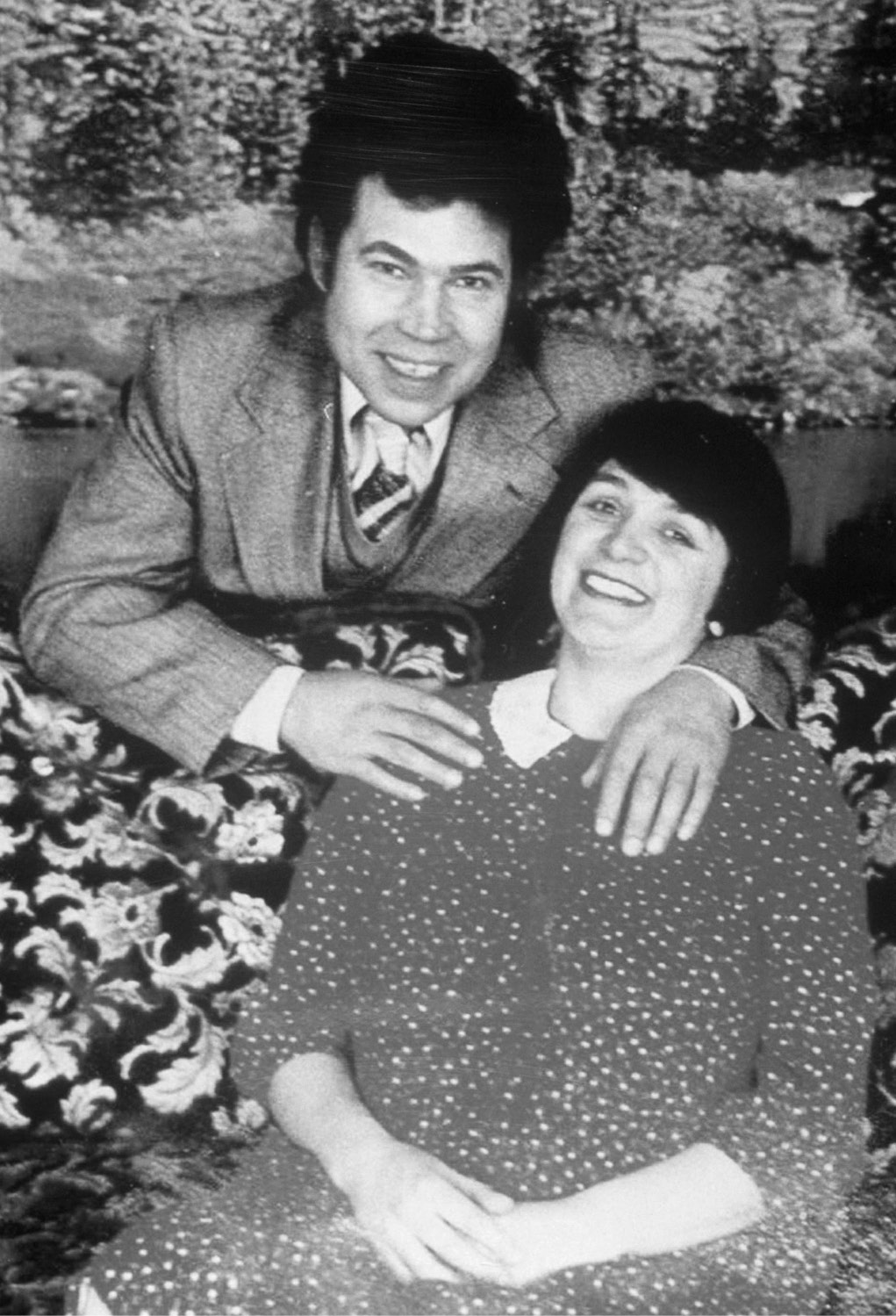
Fred West promised he would sort it out if Rose kept her mouth shut about all the deaths, he would take the blame.
Rosemary Wests early life
Rosemary West, ne Letts, was born on 29 November 1953 to a dysfunctional family. Her father, Bill Letts, was a schizophrenic who demanded total obedience from his wife and children and he was always on the lookout for reasons to beat them.
We were not allowed to speak and play like normal children, said Roses brother Andrew. If we were noisy, he would go for us with a belt or chunk of wood.
In the thrall of a violent husband, Roses mother Daisy suffered from severe depression, so in 1953 she was hospitalized and given electroshock therapy. She was pregnant with Rosemary at the time and this may have affected the newborn child. In her cot Rosemary developed the habit of rocking violently sometimes so violently that she could move her pram across the room, even when the brake was on.

